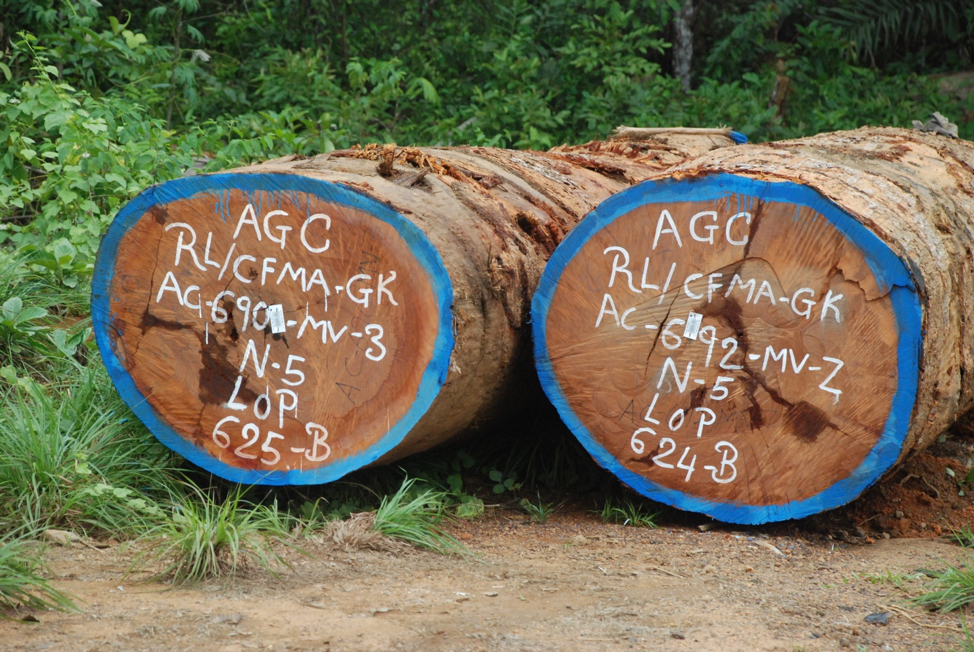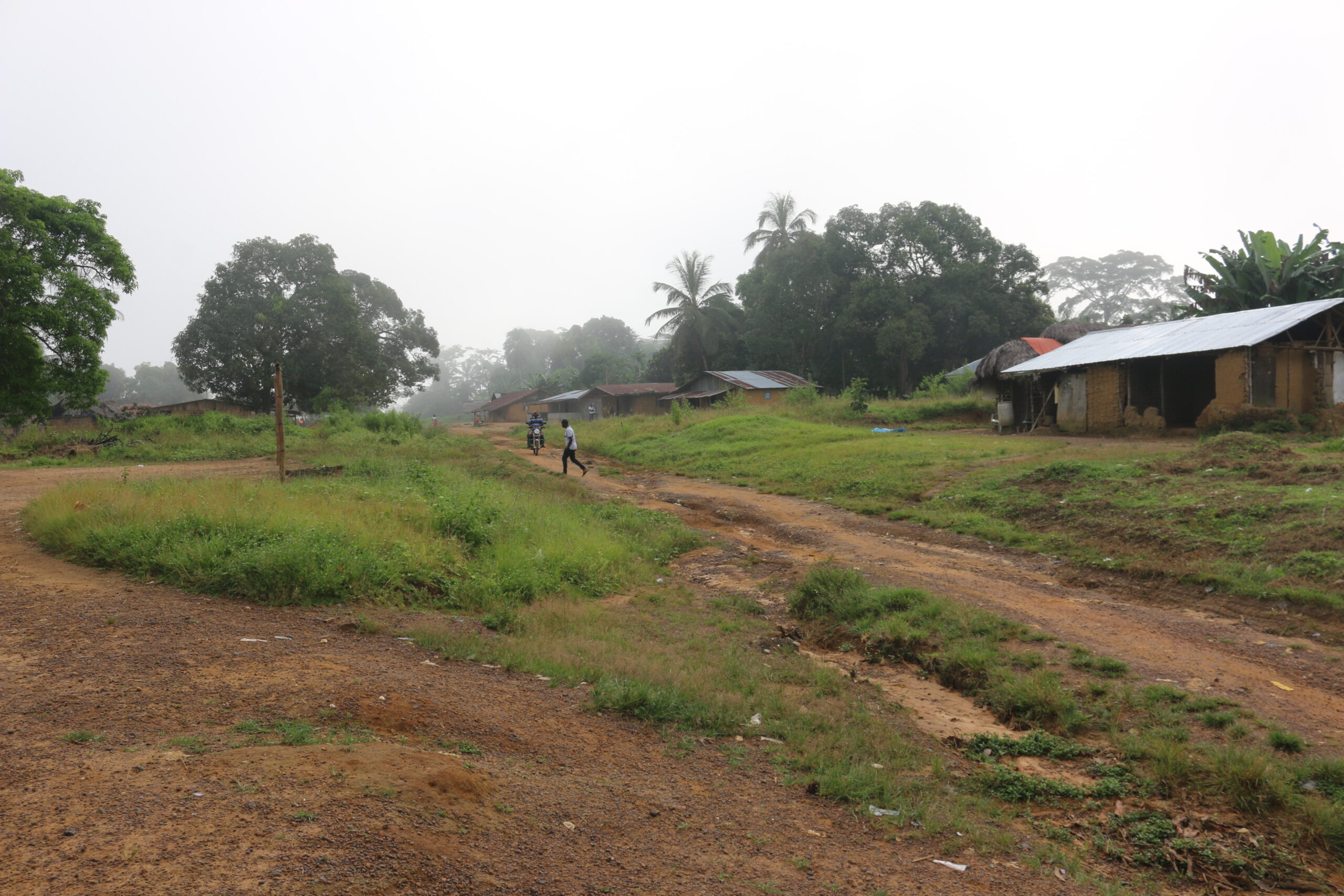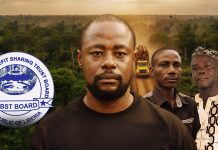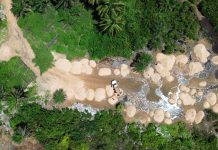Top: Varguaye is one of the towns affected by Akewa’s operations in the Gola Konneh Community Forest. The DayLight/James Harding Giahyue
By Emmanuel Sherman
Editor’s Note: This story is the second of a two-part series on Akewa Group of Companies’ operations in Liberia, focusing on the shortcomings of communities where the company operates. The first part emphasized the contribution of the Forestry Development Authority to the firm’s violations.
VARGUAYE, Grand Cape Mount County – Something did not seem right to Willie Williams about Akewa Group of Companies’ tax clearance when it bid for the Gola Konneh
Community’s Forest. So, Williams, who had just been elected chairman of the community assembly of Gola Konneh (a powerful body in community forestry), wrote the Liberia Revenue Authority (LRA) to verify the document.
It turned out Akewa’s tax clearance was fake as Williams had suspected all along. The tax clearance Akewa had submitted was “forged and was definitely not obtained from the LRA,” the agency said in a letter dated March 25, 2019. The communication added that the tax clearance Akewa presented belonged to Tiger Quarry, a mining company.
Williams’ effort to disqualify Akewa was opposed by other members of the leadership and county officials. Furious over that, he resigned and Akewa went on to win the bid for the 49,179-hectare forestland, beating Green Wood, Auzy International, Sing Africa Plantation Liberia Limited and Master Logger some of whose credentials were legitimate. Not long after that, Akewa signed the agreement with Gola Konneh. No records show it was punished.
“I am not responsible for [the] fake tax payment. Forestry Development Authority (FDA) is there and has oversight, not me. I can’t do their work,” said James Momo, chief officer of the Gola Konneh’s community forest management body, in a mobile phone interview. “We wanted somebody that we could work together.”
Forestry laws do not back Momo’s claims. The Community Rights Law of 2009, with Respect to Forest Lands, which was created when Momo was a senator of Grand Cape Mount County, gives communities that very right. “Communities have the responsibility of ensuring transparency and accountability in community forest resource management,” the law says.
The FDA refutes his comments. Managing Director C. Mike Doryen tells The DayLight in an interview that Akewa later presented a genuine document before acquiring Gola Konneh. “We prevented Akewa from doing further business until they could provide [their] tax clearance The clearance was given, they rectified it and they paid a fine and that’s how we resumed business with them,” Doryen adds without showing any proof of the fine.
Liberian laws require harsh punishments for faking a tax clearance. Under the National Forestry Reform Law, a person could get a 12-month prison term for forging bidding documents or a US$10,000 fine, or both. That person faces up to five years in prison under the Penal Code, as using false information in bidding constitutes perjury under Regulation 103-07 of the FDA Ten Core Regulations. They could pay a fine for breaking the Revenue Code as well.
The situation in Gola Konneh is typical of the contributions of community forest leaders to Akewa’s violations of forestry laws and regulations, spanning over a decade. While the Forestry Development Authority (FDA) has unlawfully approved one Akewa project to another and violated its own laws during this time, villagers have aided the company in exploiting themselves.
Starting logging operations in 2008, Akewa is one of the most infamous companies in the postwar forestry sector, dogged by irregularities. Apart from its tax clearance scam, it has been involved in the industry’s biggest scandal and has been indebted to communities every year.
Doryen says the Liberian government had given Akewa and other companies more time pay all overdue debts. “At one point in time companies requested from the previous government to give them time to settle forest-related fees because they were not making a profit,” Doryen says. There was flexibility applied to some of these things at the time.”
‘I blame the elders’
Expectedly, the expectations of townspeople in Gola Konneh over Akewa have not been met as it has not lived up to the agreement. Akewa owes the community US$83,620 in land rental and scholarship fees. The company has not paved roads, constructed handpumps, erected latrines and provided an ambulance for affected communities it is obligated to do within the first three years of its operations, according to the agreement.
The parties signed a memorandum of understanding in November last year, giving Akewa up to August later this year to make all payments. It, however, has already missed monthly deadlines in the new payment scheme, according to Abraham Sirleaf, the chairman of the community assembly, Williams’ successor.
“The company has not employed a single youth,” says Abubaker Jalloh, a youth representative, in reference to a clause in the agreement. “I regret why Akewa took our forest.”
“I blame the elders and other big people of the county for not allowing us as [community assembly] members to decide which company we wanted, and they took Akewa,” says Miatta Pratt, a member of the community assembly.
Gola Konneh has itself to blame, according to Bonathan Walaka, the national facilitator of the National Union of Community Forest Management Body (NUCFMB), which advocates for community forest leadership. Shortly before the Akewa agreement, Gola Konneh’s leaders visited the Beyan Poye Community Forest to share experiences. Walaka says Gola Konneh leaders ignored what they learned from their Beyan Poye counterparts.

“The forest governance of Gola Konneh didn’t follow the due-diligence process properly before contract negotiation with Akewa because the company has noncompliance issues with Beyan Poye,” Walaka tells The DayLight in an emailed interview.
Beyan Poye has had a worse experience with Akewa over their 2017 agreement. The company owes the Margibi community US$85,679 for the rental of its land and the logs it harvested there between 2018 and 2021, according to that community’s leadership. With an exception of a lone handpump, the Nigerian company has also not fulfilled its promises to the community. Now both parties are embroiled in arbitration, with the community opting to terminate the contract with the company following nearly five years of chaos.
But Beyan Poye could have prevented this from happening if they had paid attention to Akewa’s track record. It was not Akewa’s first logging deal in the Gibi District, after all. In the early 2010s, it had obtained a private use permit (PUP) there, including a large portion of the Beyan Poye today. That PUP and 62 others, covering 2.5 million hectares of forestland or 23 percent of the country’s landmass, had been illegally awarded. They became the biggest scandal in the postwar logging industry: the private use permit (PUP) of 2012. Then-President Ellen Johnson Sirleaf signed an executive order canceling all of them after an official inquest.
The investigation found villagers in Gibi did not consent to the Akewa’s use of their land, its PUP overlapped with private property and was never resolved, and that the company did not have a business plan, a major prequalification requirement that provides information on the companies’ technical and financial capacity to operate and pay dues.
That was not the only record Beyan Poye had at its disposal. Akewa had left a similar trail in Compound One in Grand Bassa County, just across the Farmington River. It had logged there for nearly nine years, leaving that community with a stretch of dirt road and US$10,000, according to the community’s leadership. In March last year, the FDA canceled that contract, known in forestry as timber sale contract area three (TSC A3). Akewa still owes that community US$11,624 for rental of its land, according to official records, and an unspecified amount for logs it harvested there, according to the community leadership.
Beyan Poye ignored all those things and leased its 33,380-hectare forest to the company.
“[We] the community people were ignorant of the forest procedures,” says Jehudi Barnyou, chief officer of Beyan Poye’s community forest management body. “We did not go on any training to know how it works.”
“We had no experience yet,” says Amos Boyer, co-chairman of the community assembly of Beyan Poye, who as commissioner of the Gibi District in 2017 introduced Akewa’s owner and CEO Abigail Funke Odebunmi to the community. “Having all the needs for road connectivity, we were very much eager. Since it was logging business, we felt we were blessed.”
Loretta Pope-kai, a lead campaigner at Foundation for Community Initiative (FCI), thinks communities have to do better in managing their forest to harness their benefits.
“Community forest governance structures have the power to develop their communities. Ignorance is never an excuse,” Mrs. Pope-Kai says. “If they continue like this, they will continue to push themselves into poverty and underdevelopment.”
Akewa did not respond to any of The DayLight’s queries for comments. Mrs. Odebunmi initially agreed to speak with us in December last year—after many failed attempts—and then declined a formal interview when we finally met her. We emailed her our questions as she had requested but she still did not respond. She again ignored our WhatsApp message in April earlier this year.
This story was produced by the Community of Forest and Environmental Journalists (CoFEJ) of Liberia





Facebook Comments